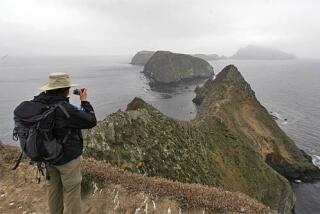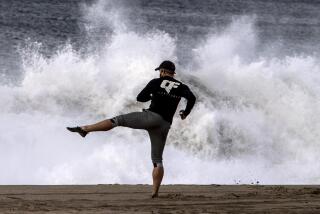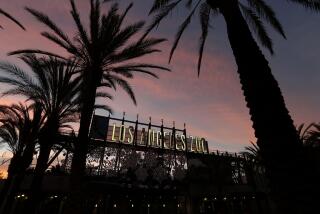To slow coronavirus spread, Orange County and others close parking at beaches, parks
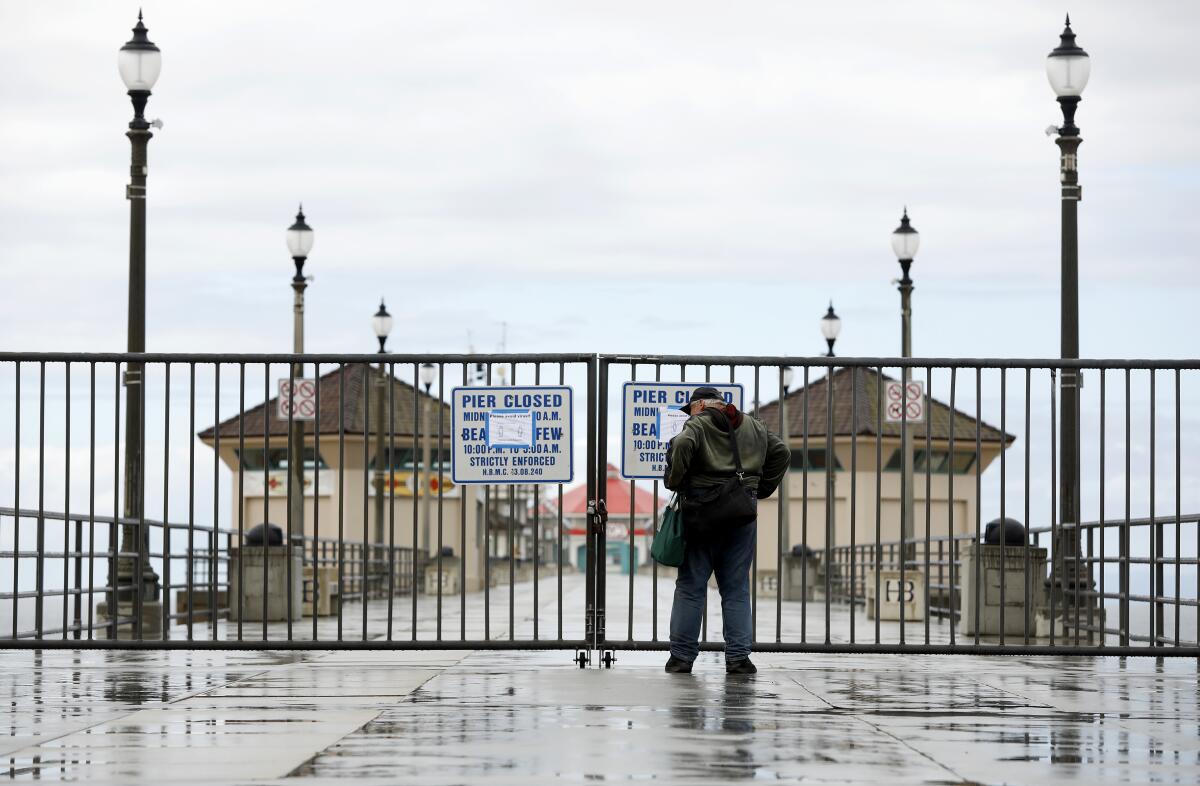
Officials up and down the California coast — including in Orange County — are moving to restrict parking access to their parks and beaches in a bid to slow the spread of the coronavirus.
Orange County took the plunge Tuesday, following an order by Gov. Gavin Newsom to close parking lots at California’s state parks. Newsom ordered the “soft closure” on Monday night, after large crowds descended on public parks over the weekend.
“I think we need to take action today,” County Supervisor Lisa Bartlett said Tuesday during the board’s meeting, where members took their usual seats on the dais while a number of seats were kept open to prevent those in the audience from sitting too close to one another. “We’ve got to protect the public. We’ve got a public health crisis out there.”
The directive from Orange County Executive Officer Frank Kim will shutter county-owned parking lots at all trails, parks and beaches under OC Parks jurisdiction, effective immediately.
“OC Parks is working on it now,” county spokeswoman Molly Nichelson said around midday.
Affected locations include Aliso, Capistrano and Salt Creek beaches, as well as Irvine Regional Park, Talbert Regional Park in Costa Mesa and Mile Square Regional Park in Fountain Valley.
While those spaces themselves will remain open, Orange County officials said they hoped closing the parking lots would keep residents — or out-of-town visitors — from crowding together.
“I would not want to discourage residents from getting out and getting fresh air,” said Supervisor Doug Chaffee.
Other counties and cities along the coast have taken similar action following a weekend that saw popular beaches packed despite calls for people to stay home as much as possible and maintain at least a six-foot buffer around themselves when they go outside.
All parks and open spaces in Sonoma County are closed indefinitely, public health officials announced this week.
The closure includes city, county, state and federal parkland and recreational lands operated by private groups and nonprofits, according to a news release.
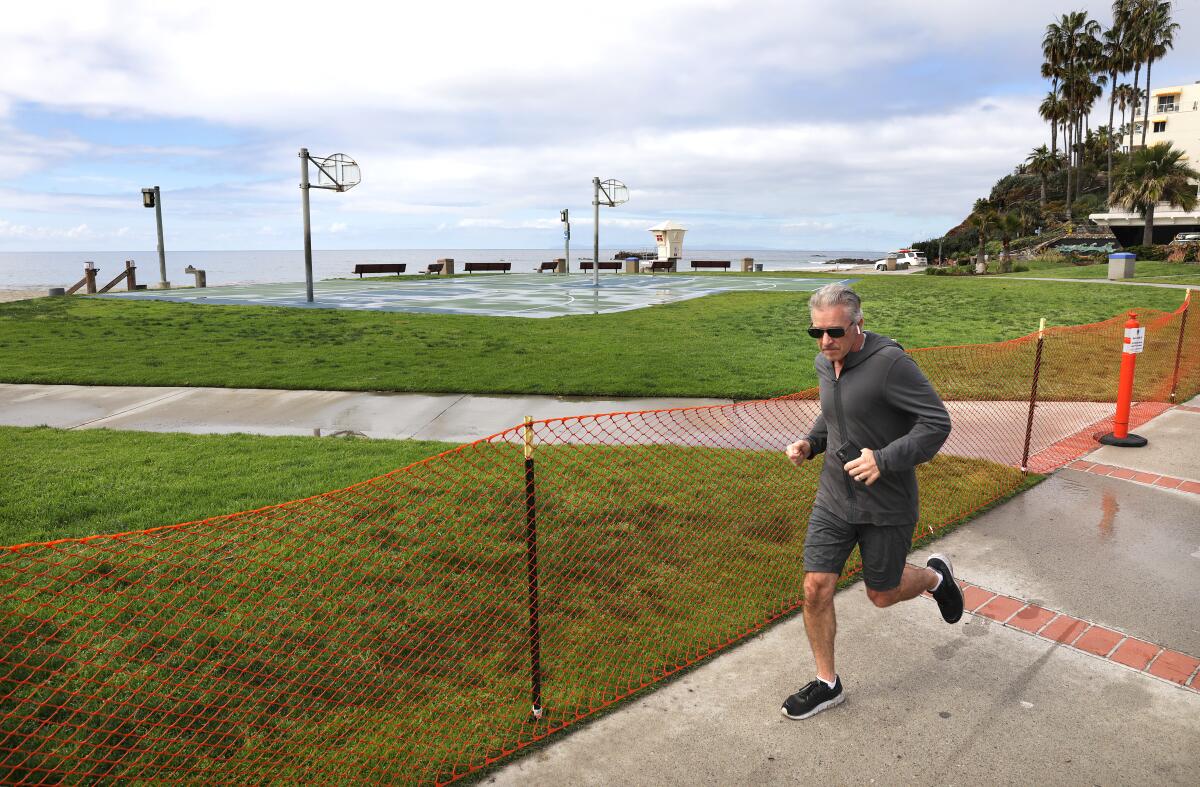
“Closing parks is a difficult decision, but it is the right decision at this time,” Sundari Mase, the county’s interim health officer, said in a statement. “Allowing crowded conditions in parks is not in our best interest during this health crisis. The best action we can take is to stay close to home and limit our outdoor time to our yards and neighborhoods.”
People are now encouraged to walk around their neighborhood, garden, take bike rides and play or exercise in their own yards. If visitors continue to park near and walk into the county’s regional park, rangers will work with local law enforcement to restrict off-site parking.
“We know that spending time outside is essential to our health, but too many people using the parks makes social distancing difficult,” said Susan Gorin, chairwoman of the Sonoma County Board of Supervisors. “We all need to follow the health order and stick close to home for our outdoor activities. If we change our actions now, we slow the spread of this disease sooner than later.”
The city of Los Angeles city and other civic agencies announced new restrictions on movements due to the coronavirus.
Prior to Orange County’s action, individual cities in the county had taken it upon themselves to implement such restrictions.
Huntington Beach’s iconic pier and all city beach parking lots closed Tuesday. In neighboring Newport Beach, all beachfront parking lots and both piers will close beginning Wednesday.
In Laguna Beach, the City Council closed city beaches Monday night and ordered trail access to county wilderness parks blocked.
Parking lots at Venice Beach are closed too, as are beach parking lots in Santa Monica and Malibu. Lots also are closed at beaches operated by the Los Angeles County Department of Beaches and Harbors.
In Long Beach, parking lots at city-owned parks and beaches will be closed through April 19, officials said Tuesday. The city’s Belmont Veterans Memorial Pier also will be inaccessible during that time.
“We are taking this next step because there are too many people ignoring social distancing while visiting our trails and beaches,” Mayor Robert Garcia wrote in a public message. “You can still ride your bicycle, walk your dog or go for a run, but we’re encouraging folks to avoid any type of gathering and to avoid groups of people. This is a health crisis and we must act now.”
Long Beach’s latest public health order “prohibits all indoor and outdoor public and private gatherings and events.” Previously, gatherings of fewer than 10 people had been allowed, with some restrictions.
Others have gone a step further. Beaches, playgrounds, city parks and athletic courts in Seal Beach were ordered closed by City Manager Jill Ingram.
San Diego’s beaches, boardwalks and parks are officially closed, as are beaches in Del Mar, Encinitas, Carlsbad and Solana Beach.
On Tuesday, Los Angeles City Councilman David Ryu called for the closure of Runyon Canyon Park and Lake Hollywood Park on weekends.
“Making this request pains me greatly. I grew up in a two-bedroom apartment off the 101 Freeway, and our city’s parks were my only access to outdoor space,” Ryu said of his recommendation to Michael Shull, the general manager of the city’s Department of Recreation and Parks. “I don’t make this recommendation easily, but closing Runyon Canyon Park on weekends, when we have seen the highest volume of visitors, should follow to keep everyone safe.”
Such restrictions aren’t limited to coastal areas, either. Officials in La Quinta in Riverside County on Tuesday closed local skate parks, dog parks, children’s playgrounds and outdoor recreational courts.
The San Diego Union-Tribune and City News Service contributed to this report.
More to Read
Sign up for Essential California
The most important California stories and recommendations in your inbox every morning.
You may occasionally receive promotional content from the Los Angeles Times.
